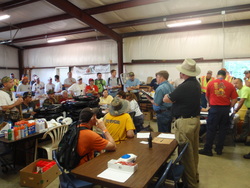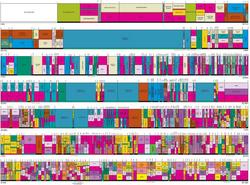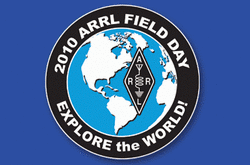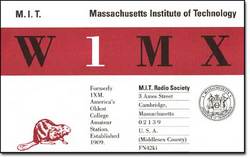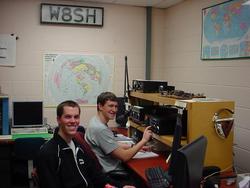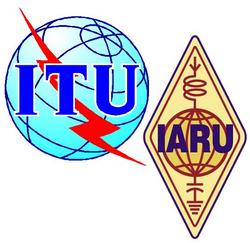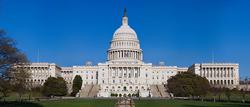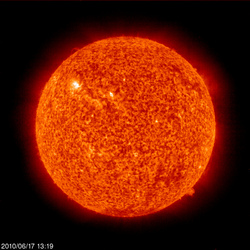 June 17, 2010 John E. Ross, KD8IDJ, Editor
| |||||||||||
+ Available on ARRL Audio News + Public Service: Amateurs in Arkansas Provide Support to Local Authorities after Flood Kills 20
In the early hours of Friday, June 11, as many as 300 campers were taken unawares when 6-10 inches of rain fell in the rugged Ouachita Mountains. The deluge caused the normally quiet Caddo and Little Missouri rivers to overflow their banks during the night. Around dawn, floodwaters barreled into the Albert Pike Recreation Area, a 54-unit campground in the Ouachita National Forest, about 75 miles west of Little Rock. Cars were wrapped around trees and children's clothing could be seen scattered across several campsites. In all, authorities said that 20 people lost their lives; 18 of the 20 victims have been publicly identified, among them eight children age 7 or younger. Eight of the 18 were from Louisiana, seven were from Texas and three were from Arkansas. The Pike County Sherriff requested the assistance of Amateur Radio operators to assist with search and rescue operations, as well as communications support, at the site. Read more here. Public Service: California Hams Help Coordinate Off-Road Rescue
On Saturday, June 12 around 1:30 PM local time, Jim Siemons, AF6PU, of Walnut Creek, California, was checking his e-mail when he received a message from a friend who was concerned that his brother -- who, along with four friends had taken an off-road adventure along California's famed Rubicon Trail -- had not come home when expected. Siemons' friend told him that his brother's group had left on Wednesday with four off-road vehicles in an attempt to cross the Trail. Since Siemons and his friend's brother were members of the same off-roading club, his friend thought Siemons might have some information. Siemons forwarded the e-mail to several other club members; within five minutes, he received a phone call from fellow club member Jenny Ward, KI6YBQ, suggesting that he try Amateur Radio to attempt to locate the missing group. There is no cell phone coverage on the Trail and very limited official agency radio coverage, making Amateur Radio the only effective means of communication in the area. Read more here. + FCC News: ARRL Comments in FCC Spread Spectrum Proceeding In response to a 2006 ARRL Petition regarding spread spectrum issues, the FCC released a Notice of Proposed Rule Making (NPRM) on March 16 (WT Docket No 10-62). The Commission is looking to amend Part 97 to facilitate the use of spread spectrum communications technologies by eliminating the requirement that amateur stations use automatic power control (APC) to reduce transmitter power when the station transmits a spread spectrum (SS) emission, as well as reducing the maximum transmitter power output when transmitting a SS emission. The ARRL filed comments on this matter on June 14, 2010. Read more here. Attention Weather Satellite Users: FCC Seeks Information, Comments on Current Use of 1675-1710 MHz
The National Broadband Plan (NBP) recommends that the FCC should make 500 MHz of spectrum available for broadband use within the next 10 years, including 300 MHz between 225 MHz-3.7 GHz for mobile use in the next five years. The FCC's Office of Engineering and Technology (OET) has engaged in discussions with the National Telecommunications and Information Administration's (NTIA) Office of Spectrum Management to begin examining various frequency bands that may be suitable for mobile broadband use. NTIA has preliminarily identified the 1675-1710 MHz band for such use and is examining the impact on its incumbent federal users. As such, the FCC issued a Public Notice (ET Docket No 10-123) on June 4, 2010, seeking information to help better comprehend the current use of the 1675-1710 MHz band by non-federal entities and better understand its potential utility for broadband. This portion of the spectrum is utilized by weather satellites. Read more here. + FCC News: FCC Seeks Comments on Amateur 5 MHz (60 Meters) Allocation In May, the FCC released a Notice of Proposed Rulemaking (NPRM) -- ET Docket No 10-98 -- proposing to amend the Part 97 rules governing the Amateur Radio Service. Specifically, the Commission looks to modify the rules pertaining to the use of five channels in the 5330.6-5406.4 kHz band (60 meters) to replace one designated channel with one that is less encumbered, to authorize three additional emission designators and to increase the maximum authorized power in this band. On June 15, a summary of the NPRM was published in the Federal Register, which started the clock on the deadline for comments. Comments must be filed on or before July 15, 2010 (30 days after publication in the Federal Register); reply comments must be filed on or before July 30, 2010 (45 days after publication in the Federal Register). Instructions on how to file comments are listed beginning on page 6 of the NPRM. + ARRL Field Day: Field Day Station Locator Service Returns for 2010
First introduced in 2008, the ARRL's Field Day Station Locator Service has proved a popular addition to the Field Day toolbox. This service -- an interactive map that helps amateurs or those interested in Amateur Radio find a Field Day site near them -- is free to clubs or individuals who will be operating public Field Day stations. Stations can also be listed by state or province. So far, hams in all 50 states and Puerto Rico have listed Field Day sites on the Field Day Locator. If your group would like to be a part of the Station Locator Service, it's easy to get started -- just go to the Field Day Station Locator Web site and follow the instructions (this is a different link than was printed in the Field Day packets). ARRL Field Day is the most popular on-the-air operating event in Amateur Radio. On June 26-27, join tens of thousands of Amateur Radio operators as they gather for a public demonstration of the Amateur Service. + On the Air: A Ham Radio Homecoming
Beginning with the 2010 ARRL November Sweepstakes, the prohibition against alumni operating at a school club station has been repealed. According to Ward Silver, N0AX, the goal of the rule change is to get more school clubs active for Sweepstakes and on HF. Sweepstakes is just a little over four months away -- the first and third weekends of the month. What are your plans? Wouldn't it be nice to hear the call sign of your alma mater ringing out in the middle of the Sweepstakes exchange? Sure it would!
"Entering Sweepstakes in the Multioperator category was once a staple of the fall semester's competitive atmosphere, but many high school and collegiate clubs have fallen silent or nearly so over the past decades," Silver explained. "Your school club might be interested in hosting an alumnus or two -- why not contact them? If the club station has been inactive in recent years, this would be a good way to help get activity jump-started again. To get the juices flowing, challenge a nearby club or try to beat a score from days gone by." Read more here. + International Perspective: Forthcoming IARU Activities at the ITU
Working Parties 1A and 1B of the International Telecommunication Union's (ITU) Study Group 1 will meet in Geneva from June 21-28. A major item of discussion will be protection of radio services from interference from Broadband over Powerline (BPL), called Power Line Communications (PLC or PLT) in Europe. The International Amateur Radio Union (IARU) has already contributed to the ITU-R report SM2158, Impact of Power Line Telecommunication Systems on Radiocommunication Systems Operating in the LF, MF, HF and VHF Bands Below 80 MHz. This report shows the acceptable criteria for degradation of the HF radio noise floor caused by BPL is defined as being 0.5 dB. Work in WP1A will concentrate on the protection of radio services from the effects of BPL in range from 80-200 MHz. Read more here. + Legislative: HR 2160 Now Counts 40 House Sponsors
Last month, another Congressional Representatives -- Mike McIntyre (D-NC-7) -- pledged his support for HR 2160, The Amateur Radio Emergency Communications Enhancement Act of 2009, bringing the total number of cosponsors to 40, including original sponsor Sheila Jackson-Lee (D-TX-18). HR 2160 is also sponsored by W. Todd Akin (R-MO-2), Michael Arcuri (D-NY-24), Roscoe Bartlett (R-MD-6), Jo Bonner, (R-AL-1), John Boozman (R-AR-3), Madeleine Bordallo (D-Guam), André Carson (D-IN-7), Geoff Davis (R-KY-4), Bob Filner (D-CA-51), Jeff Fortenberry, (R-NE-1), Scott Garrett (R-NJ-5), Bart Gordon (D-TN-6), Brett Guthrie (R-KY-02), Maurice Hinchey (D-NY-22), Michael Honda (D-CA-15), Mary Jo Kilroy (D-OH-15), Ron Klein, (D-FL-22), Tom Latham (R-IA-4), Zoe Lofgren (D-CA-16), Blaine Luetkemeyer (R-MO-9), Thaddeus McCotter (R-MI-11), Michael E. McMahon, (D-NY-13), Cathy McMorris Rodgers, (R-WA-5), Charlie Melancon (D-LA-3), Candice Miller (R-MI-10), Dennis Moore (D-KS-3), John Olver (D-MA-1), Bill Posey (R-FL-15), Denny Rehberg, (R-MT), Dana Rohrabacher (R-CA-46), Aaron Schock, (R-IL-18), Bennie Thompson (D-MS-2), Michael Turner (R-OH-3), Greg Walden, W7EQI (R-OR-2), Peter Welch (D-VT), David Wu (D-OR-1), C.W. Bill Young (R-FL-10) and Don Young (R-AK). On the Senate side of Capitol Hill, S 1755 -- also called The Amateur Radio Emergency Communications Enhancement Act of 2009 -- cleared the Senate by unanimous consent in December 2009 and now sits in the House Committee on Energy and Commerce. Click here for information on how to encourage your Congressional representative to sponsor HR 2160. + Solar Update
Tad "The starred and stately nights seemed haughty dames in jeweled velvets, nursing at home in lonely pride, the memory of their absent conquering Earls, the golden helmeted Suns!" Cook, K7RA, reports: Sunspots disappeared for the past two days, June 15-16, which is a bit scary considering the weak solar cycle we've seen recently. In the northern hemisphere, we are just a few days from the summer solstice. Despite the lack of sunspots for the last two days of the June 10-16 week, the average daily sunspot numbers rose 2.5 points from the previous week. Geomagnetic activity peaked on June 16, with the planetary A index at 19 and high latitude College A index at 42. This should decline over the next couple of days. Look for more information, including a look at some reported 10 meter propagation from Arizona to Rarotonga, on the ARRL Web site on Friday, June 18. For more information concerning radio propagation, visit the ARRL Technical Information Service Propagation page. This week's "Tad Cookism" brought to you by Herman Melville's Moby Dick (Chapter 29, "Enter Ahab; to Him, Stubb"). This Week on the Radio This week, a running of the NCCC Sprint Ladder takes place June 18. The Kids Day Contest and the Feld Hell Sprint are both June 19. The All Asian DX Contest (CW) and the West Virginia QSO Party are June 19-20. The Run for the Bacon QRP Contest is June 21 and the SKCC Sprint is June 23. Next week, everyone is on the air for ARRL Field Day on June 26-27. Look for the His Majesty King of Spain Contest (SSB) and the Marconi Memorial HF Contest, also on June 26-27. The SARL Digital Contest is June 27 and the RAC Canada Day Contest is July 1. There is another running of the NCCC Sprint Ladder on July 2. All dates, unless otherwise stated, are UTC. See the ARRL Contest Branch page, the ARRL Contest Update and the WA7BNM Contest Calendar for more info. Looking for a Special Event station? Be sure to check out the ARRL Special Event Station Web page. ARRL Continuing Education Course Registration
Registration remains open through Sunday, June 20, 2010, for these online course sessions beginning on Friday, July 2, 2010: Amateur Radio Emergency Communications Level 1; Antenna Design and Construction; Propagation; Analog Electronics, and Digital Electronics. To learn more, visit the CEP Course Listing page or contact the Continuing Education Program Coordinator. | |||||||||||
